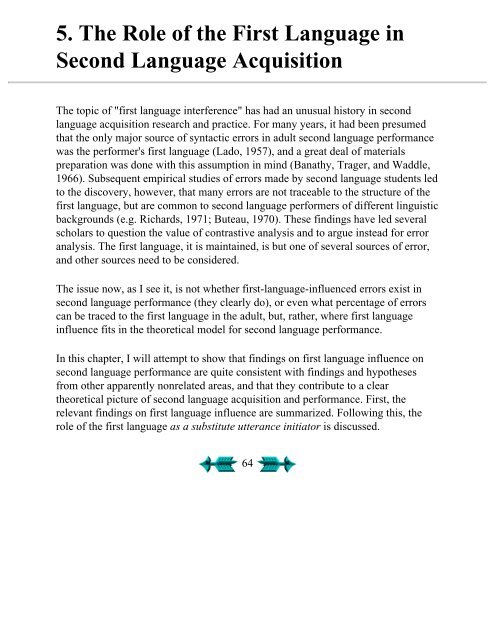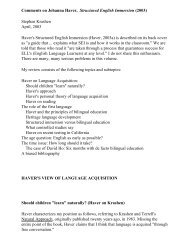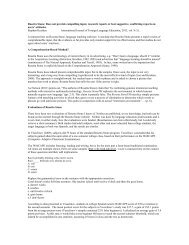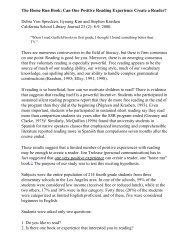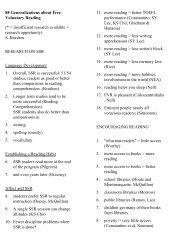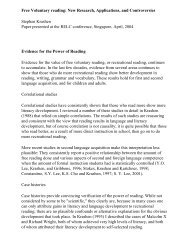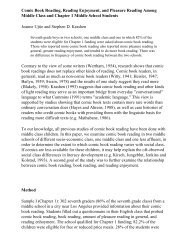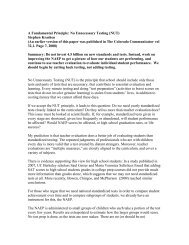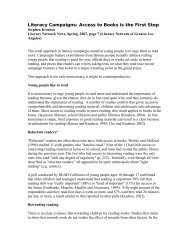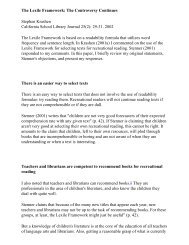Second Language Acquisition and Second ... - Stephen Krashen
Second Language Acquisition and Second ... - Stephen Krashen
Second Language Acquisition and Second ... - Stephen Krashen
You also want an ePaper? Increase the reach of your titles
YUMPU automatically turns print PDFs into web optimized ePapers that Google loves.
5. The Role of the First <strong>Language</strong> in<br />
<strong>Second</strong> <strong>Language</strong> <strong>Acquisition</strong><br />
The topic of "first language interference" has had an unusual history in second<br />
language acquisition research <strong>and</strong> practice. For many years, it had been presumed<br />
that the only major source of syntactic errors in adult second language performance<br />
was the performer's first language (Lado, 1957), <strong>and</strong> a great deal of materials<br />
preparation was done with this assumption in mind (Banathy, Trager, <strong>and</strong> Waddle,<br />
1966). Subsequent empirical studies of errors made by second language students led<br />
to the discovery, however, that many errors are not traceable to the structure of the<br />
first language, but are common to second language performers of different linguistic<br />
backgrounds (e.g. Richards, 1971; Buteau, 1970). These findings have led several<br />
scholars to question the value of contrastive analysis <strong>and</strong> to argue instead for error<br />
analysis. The first language, it is maintained, is but one of several sources of error,<br />
<strong>and</strong> other sources need to be considered.<br />
The issue now, as I see it, is not whether first-language-influenced errors exist in<br />
second language performance (they clearly do), or even what percentage of errors<br />
can be traced to the first language in the adult, but, rather, where first language<br />
influence fits in the theoretical model for second language performance.<br />
In this chapter, I will attempt to show that findings on first language influence on<br />
second language performance are quite consistent with findings <strong>and</strong> hypotheses<br />
from other apparently nonrelated areas, <strong>and</strong> that they contribute to a clear<br />
theoretical picture of second language acquisition <strong>and</strong> performance. First, the<br />
relevant findings on first language influence are summarized. Following this, the<br />
role of the first language as a substitute utterance initiator is discussed.<br />
64


